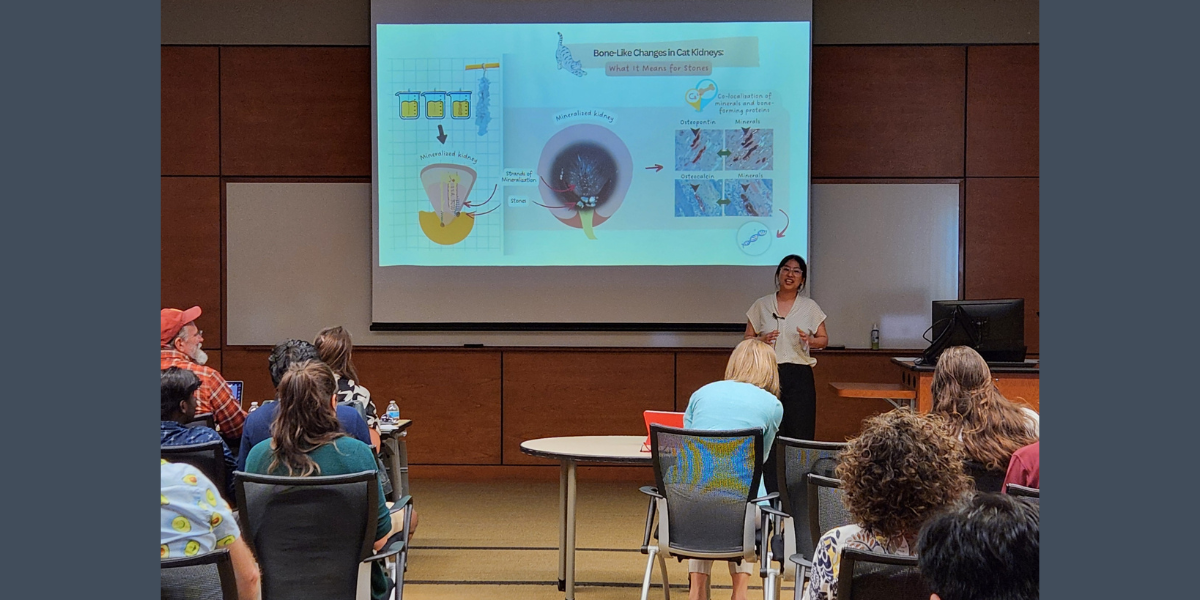Tick tock
CVM graduate student Nuttha Hengtrakul wins spot in university-level 3-Minute Thesis Competition

CVM graduate student Nuttha Hengtrakul wins spot in university-level 3-Minute Thesis Competition
CVM graduate student Nuttha Hengtrakul presents her three-minute thesis during the 2024 St. Paul Science in Seconds event.
Explaining her research into feline kidney stone formation would typically involve dozens of typed pages, but College of Veterinary Medicine (CVM) graduate student Dr. Nuttha Hengtrakul had one PowerPoint slide and three minutes.
“Each year, over half a million people are rushed to the emergency room for kidney stones, costing $10 million in medical care. But what if we could prevent stones at their root cause before they start?” she said, setting the audience up for a very brief journey through her work and discoveries.
Hengtrakul was among 10 graduate students competing in the annual St. Paul Science in Seconds competition, which challenges them to convey their thesis in a three-minute presentation.
Participants are up against more than a strict time limit. They also must take the complex research and scientific principles that comprise their thesis and present it in a simple and engaging way that is understood by the general public.
One of two CVM students participating, Hengtrakul earned the top spot for the College. She and Julia Baker presented during the Oct. 21 event, representing the Veterinary Medicine program and the Comparative and Molecular Biosciences program respectively.

Students from the College of Food, Animal, and Natural Sciences and the College of Biological Sciences also participated in the competition. One winner from each college will go on to compete at the university-level 3-Minute Thesis event on Nov. 15.
Hengtrakul is advised by Dr. Jody Lulich. Her research investigates the causes of kidney mineralization—a condition where calcium or other minerals build up in the kidney tissue—and this mineralization’s potential role in the formation of kidney stones. Her research has identified bone-forming proteins present in the kidneys that could contribute to mineralization. Gaining a better understanding of stone formation causes—including genetics— could lead to methods of preventing kidney stones in both cats and humans.
Baker is advised by Kim VanderWaal. Her research explores Porcine Reproductive and Respiratory Syndrome (PRRS) outbreaks, a disease that can result in pregnancy failure, severe respiratory symptoms, and failure to thrive in newborn pigs. Some swine herds experience multiple outbreaks from the same viral strain, leading Baker to analyze the genetic makeup of these viruses and find subtle differences in amino acids that likely allow the virus to evade the immune system.